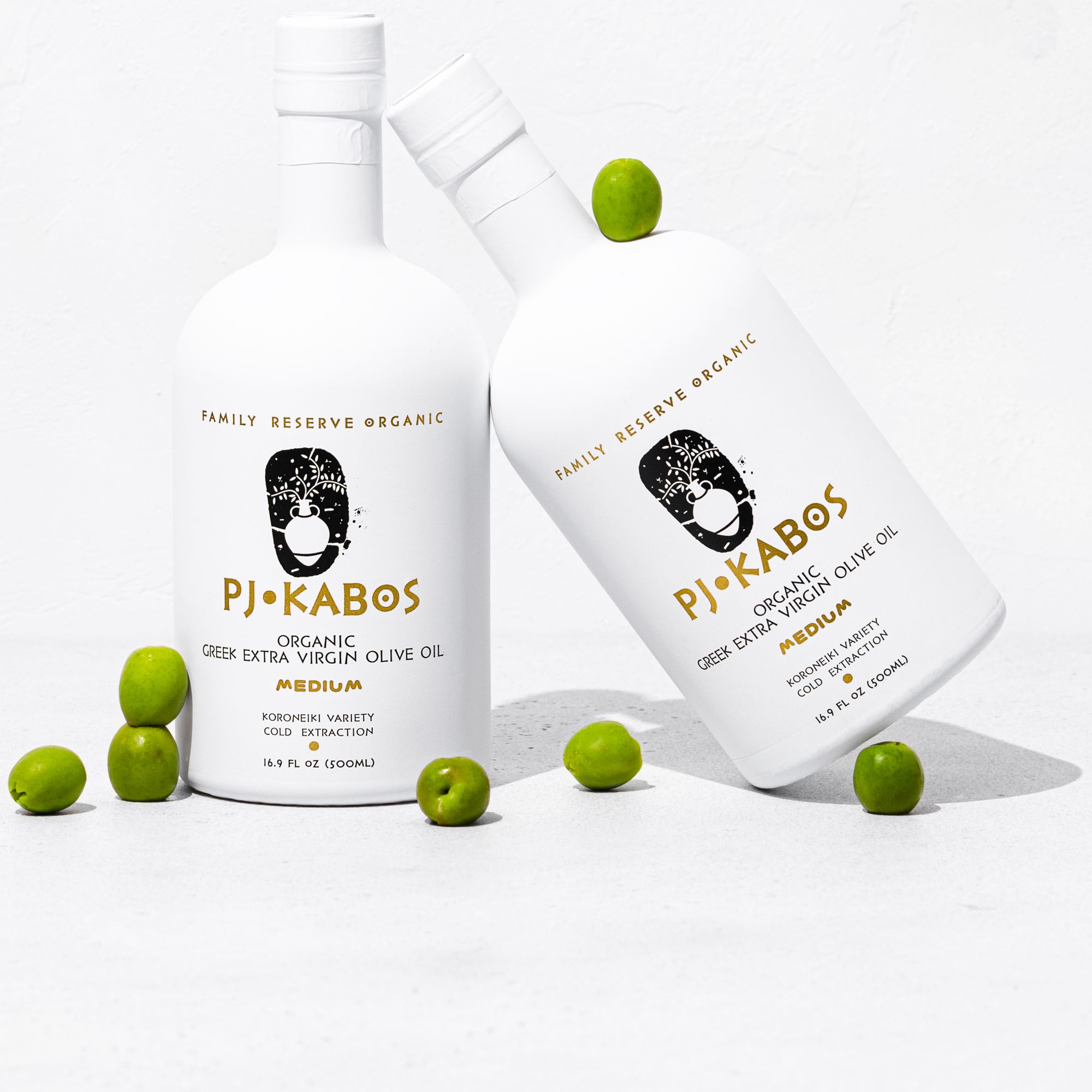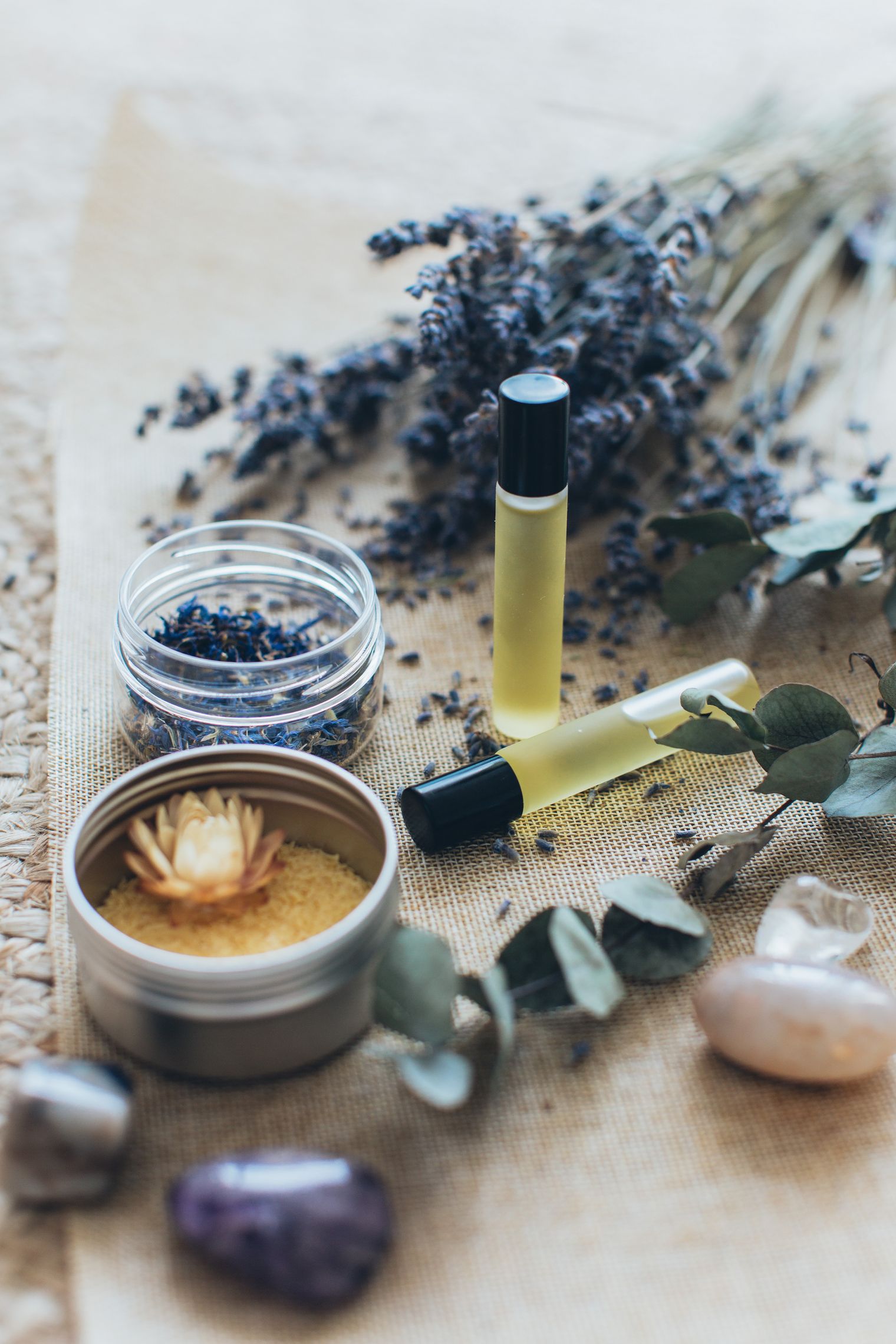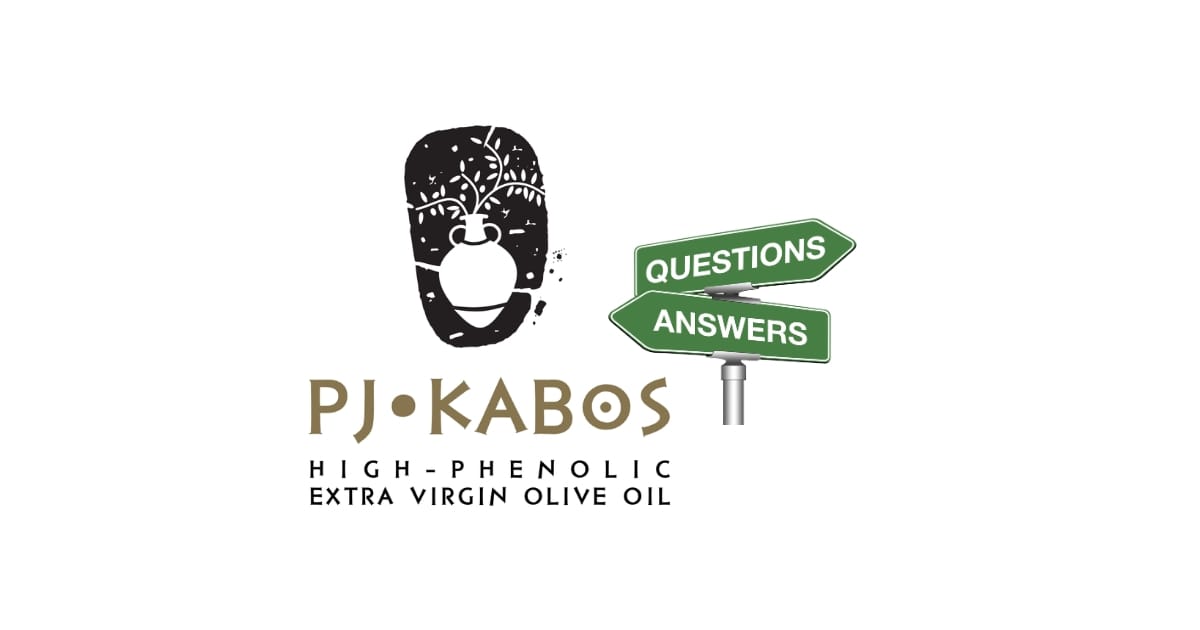Essential oils can be a great way to add natural fragrance to your home. But sometimes their therapeutic benefits are best experienced when applied to the skin itself.
There’s one big caveat for applying essential oils to your body (or even your bathtub), though: Because these plant-oils are highly concentrated, you must dilute them with a carrier oil first in order to prevent skin irritation. A carrier oil is basically any oil that’s used to dilute an essential oil so it’s less irritating —think of them as safely “carrying” essential oils to your skin.
Since most of us already keep olive oil on hand in the kitchen, you might find yourself wondering, does olive oil make a good carrier oil? The short answer: Most of the time, yes!
Olive oil tends to get overlooked in favor of trendier skincare oils like argan oil, jojoba oil, and sweet almond oil. These are a bit lighter (leaving a less greasy finish on the skin) and more neutral in aroma. But the truth is, olive oil is just as good at diluting essential oils, and EVOO contains a range of skin-nourishing compounds, too.
Here are some reasons olive oil makes an ideal carrier oil:
- It softens skin. Olive oil also contains compounds such as oleic acid (a type of monounsaturated fat), squalene, and palmitic acid, all of which act as natural emollients to soften dry, rough skin.
- It locks in moisture. Olive oil has occlusive properties, which means that it acts as a seal, trapping in moisture to help keep skin hydrated.
- It combats oxidative damage. Olive oil contains vitamin E, vitamin K, and other bioactive polyphenol compounds that may help neutralize free radicals, protect skin from the effects of various pollutants, and reduce inflammation.
Plus, depending on the type of olive oil you buy, it can have a pleasant fresh, peppery aroma that some find invigorating—it pairs particularly well with citrus essential oils like sweet orange, lemon, and grapefruit, and other robustly scented essential oils like rosemary (it may, however, interfere with the aroma of more delicate essential oils).
What Makes An Oil A Good Carrier Oil, Anyway?
There are a few widely accepted rules among aromatherapists and essential oil enthusiasts when it comes to picking a carrier oil:
- High-quality, minimally processed, plant-based. Skip animal-based oils and petroleum-derived mineral oil, and opt for a carrier oil derived from the seeds, kernels, nuts, or fruit of plants. Oils labeled extra virgin, virgin, or cold-pressed are generally a good pick, as this indicates that some of the oil’s skin-friendly plant compounds remain.
- Pleasant or neutral aroma. You want a carrier oil that’s not overpowering in aroma—and if it does have a scent, it should complement whatever essential oils you’re pairing with it
- Non-irritating to skin. Natural, plant-based oils are generally non-irritating to the skin or scalp, but you may want to do a test patch on your arm to make sure. Also, steer clear of oils derived from ingredients you’re allergic to—if you have a tree nut allergy, for example, avoid sweet almond, argan, and apricot kernel oil.
Whether something is a good carrier oil or not also depends on how you plan to use it. Do you want a light, delicate oil that will be applied to the face? Jojoba, argan, or rosehip oil are smart picks. Do you want a heavier oil that’s really going to lock in moisture as it delivers its aromatherapy perks? Then something like olive oil would be ideal.
How To Use A Carrier Oil
So, once you have your carrier oil and essential oils picked out, the next question is: How do you mix them up? What’s the ideal carrier oil to essential oil ratio? It partly depends on how strong of an aroma you want and where you’re going to be slathering that oil. Below are a few common dilutions for popular scenarios from the essential oil manufacturer Plant Therapy.
Just keep in mind, the dilution rates below aren’t always appropriate for all essential oils in every situation. If you’re unsure, you can check with the manufacturer. Always check with a physician before using essential oils on children, too, and be sure to do a patch test on your skin to make sure the essential oil does not cause irritation. (Here’s how to do a patch test.)
1% dilution
A 1% dilution rate is often recommended for facial applications, long term use, daily use, or when applying citrus essential oils to the skin (since they are photosensitizing and can make you more sensitive to the sun). Here’s how to make it:
- 3 drops essential oil per 2 tsp carrier oil
- 4 drops essential oil per 1 tbsp carrier oil
- 9 drops essential oil per 2 tbsp carrier oil
2% dilution
This dilution rate is also good for daily use and can be used in homemade massage oils or bath oils. Here’s how to make it:
- 6 drops essential oil per 2 tsp carrier oil
- 9 drops essential oil per 1 tbsp carrier oil
- 18 drops essential oil per 2 tbsp carrier oil
3% dilution
This dilution rate is recommended for specific localized discomfort (you can use this dilution when making DIY muscle rubs or a massage oils when you’re sore), or for body or bath products that are going to be rinsed off. Here’s how to make it:
- 9 drops of essential oil per 2 tsp carrier oil
- 13 drops essential oil per 1 tbsp carrier oil
- 27 drops essential oil per 2 tbsp carrier oil
5% dilution
This dilution rate is recommended for short term use for a specific concern, no longer than two weeks. For example, if you have temporary muscle soreness, you could use a 5% dilution of eucalyptus and peppermint oil in olive oil. Here’s how to make it:
- 15 drops of essential oil per 2 tsp carrier oil
- 22 drops essential oil per 1 tbsp carrier oil
- 45 drops essential oil per 2 tbsp carrier oil
10% dilution
This dilution rate is recommended for small areas of concern and acute situations. Here’s how to make it:
- 30 drops of essential oil per 2 tsp carrier oil
- 45 drops essential oil per 1 tbsp carrier oil
- 90 drops essential oil per 2 tbsp carrier oil
Our Favorite Essential Oils for DIY Aromatherapy Blends
Feel free to get creative with different essential oil and carrier oil combos. But if you need some inspiration, we’ve compiled some of the best essential oils for different physical and mental health benefits, so you can create a targeted custom blend. Pick a few oils from one of these lists then use the instructions above when diluting them with your carrier oil
Pro tip: Mix your essential oils and olive oil (or another carrier oil) in a small bowl, then transfer the mixture to a roller ball applicator using a small funnel.
Essential Oils For Stress Relief
- Rose
- Clary sage
- Frankincense
- Lavender
- Bergamot
- Marjoram
- Ylang-ylang
- Lemon
- Geranium
- Orange
- Sandalwood
- Chamomile
- Vetiver
Essential Oils For Relaxation + Sleep
- Lavender
- Vetiver
- Patchouli
- Sandalwood
- Ylang-ylang
- Chamomile
- Neroli
- Marjoram
- Cedar
- Bergamot
- Clary sage
- Frankincense
- Rose
Essential Oils For Mental Clarity + Focus
- Rosemary
- Basil
- Peppermint
- Helichrysum
- Cedar
- Vetiver
- Grapefruit
- Pine
- Juniper
Essential Oils For An Energy Boost
- Lemon
- Orange
- Grapefruit
- Eucalyptus
- Peppermint
- Ginger
- Rosemary
- Spearmint
- Black pepper
- Jasmine
Essential Oils For Tense Muscles
- Peppermint
- Eucalyptus
- Wintergreen
- Chamomile
- Nutmeg
- Ginger
- Cayenne
- Rosemary
- Black pepper
Product placement
PJ KABOS 'Family Reserve Organic - Medium'
High Phenolic and 2022 Gold-Award Winner.
Declared as 'One of the World's Best Olive Oils'.
Click here to shop.





